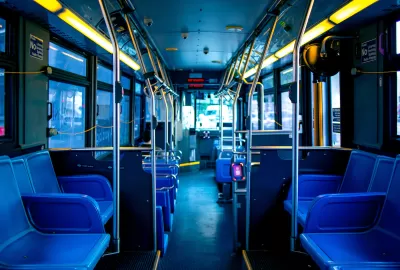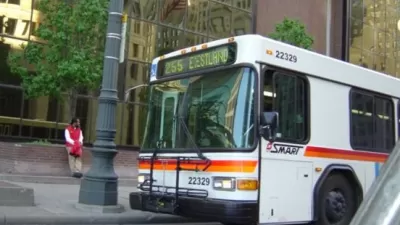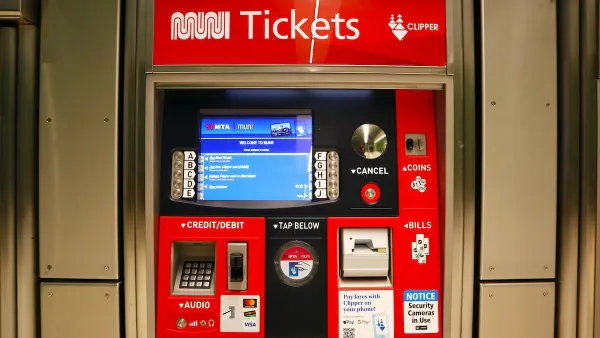Transit ridership will likely remain below pre-pandemic levels through 2024, according to analysts.

The public transit sector continues to struggle as federal emergency funding runs out and ridership in many systems remains low, reports Brett Rowland in The Daily Record.“Ridership was at 77% of pre-pandemic levels with significant variances between U.S. regions and modes of transit,” according to Rowland.
According to a report from S&P Global Ratings, “Heavy regional commuter rail-only systems still face lower ridership due to remote work trends while bus and subway systems serving cities and metropolitan areas have performed better.” The report adds, “We still expect public transit ridership will recover to only about 85% of pre-pandemic levels by 2026 under our base case and 80% under our downside case.”
Overall, transit agencies must contend with lower fare revenue and find new, sustainable funding sources. “Identifying such a model to meet operating and long-term capital needs remains an ongoing topic of debate, setting up key decisions in the coming months that will pit service levels against available resources for 2024 and beyond.”
FULL STORY: Outlook for public mass transit remains dim

Planetizen Federal Action Tracker
A weekly monitor of how Trump’s orders and actions are impacting planners and planning in America.

Restaurant Patios Were a Pandemic Win — Why Were They so Hard to Keep?
Social distancing requirements and changes in travel patterns prompted cities to pilot new uses for street and sidewalk space. Then it got complicated.

Map: Where Senate Republicans Want to Sell Your Public Lands
For public land advocates, the Senate Republicans’ proposal to sell millions of acres of public land in the West is “the biggest fight of their careers.”

Maui's Vacation Rental Debate Turns Ugly
Verbal attacks, misinformation campaigns and fistfights plague a high-stakes debate to convert thousands of vacation rentals into long-term housing.

San Francisco Suspends Traffic Calming Amidst Record Deaths
Citing “a challenging fiscal landscape,” the city will cease the program on the heels of 42 traffic deaths, including 24 pedestrians.

California Homeless Arrests, Citations Spike After Ruling
An investigation reveals that anti-homeless actions increased up to 500% after Grants Pass v. Johnson — even in cities claiming no policy change.
Urban Design for Planners 1: Software Tools
This six-course series explores essential urban design concepts using open source software and equips planners with the tools they need to participate fully in the urban design process.
Planning for Universal Design
Learn the tools for implementing Universal Design in planning regulations.
Heyer Gruel & Associates PA
JM Goldson LLC
Custer County Colorado
City of Camden Redevelopment Agency
City of Astoria
Transportation Research & Education Center (TREC) at Portland State University
Camden Redevelopment Agency
City of Claremont
Municipality of Princeton (NJ)





























